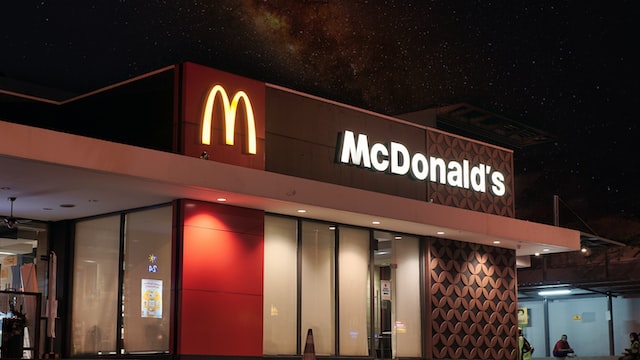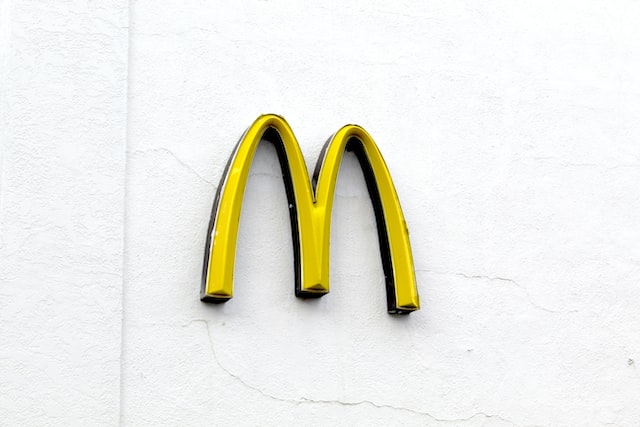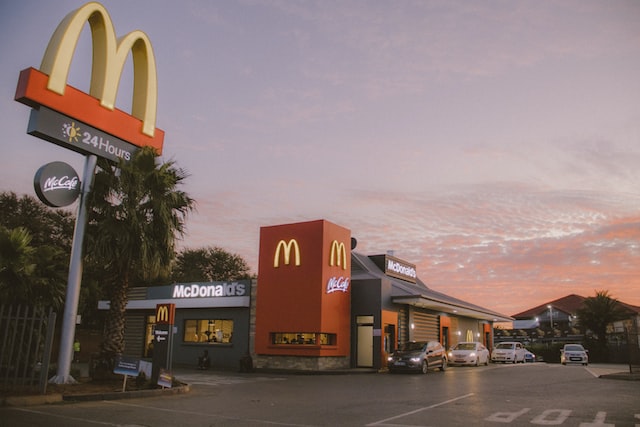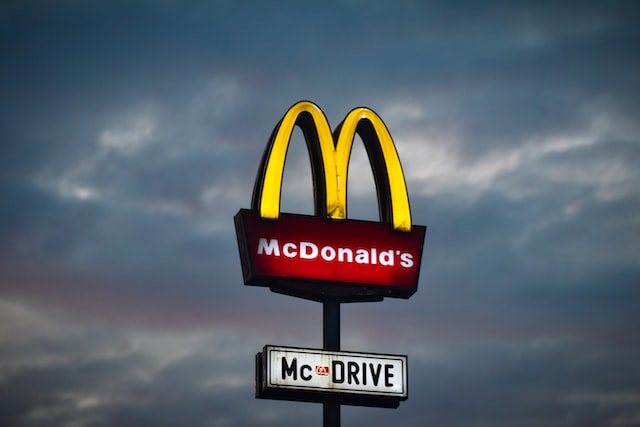McDonald’s buys about 1.9 billion pounds of beef every year, which it turns into patties for millions of Quarter Pounders, Happy Meals, Triple Cheeseburgers, Big Macs, and other popular beefy sandwiches sold around the world.
Some estimates say that the huge amount of meat means that McDonald’s and its suppliers have to kill more than seven million cattle.
However, this comes at a high cost to the environment: the 53 million metric tons of greenhouse gases produced by McDonald’s in 2019 exceed the emissions of several European nations.
Climate experts who studied McDonald’s data and plans say the fast-food chain is mostly avoiding the one bold move it must make to reduce emissions: a drastic reduction in the quantity of beef it serves.
Eco-Campaign
In 2019, McDonald’s Germany released its “Corporate Responsibility Report 2018,” which listed the company’s most important environmental, social, and economic achievements from 2018.
McDonald’s provides these climate targets to the “Science-Based Target Initiative,” which is backed by the environmental nonprofit WWF and encourages businesses to adopt science-based sustainable goals.
McDonald’s Germany reports that the company produced 1.44 million metric tons of carbon dioxide in 2018 (McDonald’s Germany 2019) and pledges to cut its global carbon dioxide emissions by 36% by 2030.
Additionally, the corporation has ambitious plans to reduce plastic waste.

The European Union Parliament has said that disposable plastic should not be sold in the EU after 2021. After that, the EU Parliament will ban “single-use plastic cutlery, cotton buds, straws, and stirrers.”
Now, McDonald’s promises to use only packaging materials from “renewable, recyclable, or certified sources” globally by 2025 and to recycle all sales packaging. Today, 10 percent of McDonald’s restaurants offer recycled packaging.
In addition, McDonald’s has the “McDonald’s Beef Sustainability Program” (2014), which offers increased space for animals, better cleaning in the stables, and improved animal health with minimal usage of medications.
In addition, farmers gain from the scheme since they receive 9 cents more per kilogram of beef sold.
In addition, the firm says that beginning in 2020, it will only purchase chicken meat from farms that provide adequate room for the animals.
Also, by January 2019, McDonald’s plans to only serve chicken from hens that haven’t been given antibiotics.
Plant-Based Products
There are already plant-based burger options at many McDonald’s locations around the world, but the company has been slow to make them available everywhere and has been slow to add the planned plant-based burger McPlant to its US locations.
CEO Chris Kempczinski stated earlier this year that it is not his responsibility to make the chain’s menu healthy and that McDonald’s is in the business of providing customers with what they want.

“My current approach to the work is to sell anything the customer wants,” stated Kempczinski.
“If customers are willing to purchase enough plant-based items, I could make my entire menu plant-based.” “If they wish to purchase a hamburger, we will sell hamburgers.”
In other words, it is unlikely that McDonald’s would want to change the diets of millions of people in a big way.
Is This a Case of Greenwashing?
McDonald’s has launched its first “net-zero” restaurant, but critics accuse it of “greenwashing,” which is the practice of making something appear better than it actually is.
This McDonald’s is on track to become the first eatery in the UK to comply with the framework for net-zero carbon buildings thanks to its new net-zero changes. For those who support eco-friendly businesses, the new site seems like a breath of fresh air.
Its drive-thru lane is constructed from recycled tires, and its signs are created from spent coffee beans. Environmentalists have called attention to the fast-food juggernaut’s continued use of dairy and meat, which is bad for the environment.

According to a well-known activist in the UK, “This new restaurant can only be called what it is: McGreenwash” if dairy and meat continue to make up the majority of the menu at McDonald’s.
Because animal agriculture causes so many greenhouse gas emissions and environmental damage, no restaurant can be “green” while selling animal products.
Dairy and meat products are two of the most significant sources of deforestation pollution, so reducing their production is more important than ever.
Effective Steps Toward The Future
It was described as a positive starting step but not a “substantial reduction.”
He went on to say that the company’s beef operation will have to change because of this, and McDonald’s efforts in this area are described in a press release: “A 5.9% drop in the emissions intensity of the supply chain from the 2015 baseline.”
However, emissions are still increasing, albeit slightly more slowly than before. The number of emissions per unit of a product is referred to as the “intensity of emissions.” If the corporation expands, as McDonald’s has, its emissions may increase as well.
CDP data shows that the company’s supply chain and beef production emissions went up by about 30% between 2017 and 2019.

McDonald’s is “building the processes and systems” it needs to cut down on greenhouse gas emissions from the way it raises and sells beef and the way it gets supplies.
A time will come when they will need to diversify their menus, they continued, adding that “they need to really start showing significant reductions.”
McDonald’s has not revealed its comprehensive net zero plan and will not reveal the specific measures that will be included.
But these kinds of programs have been criticized because they let polluters keep putting out a lot of greenhouse gases for the next few decades.
Conclusion
Environmentalists continue to warn about the harmful effects of animal agriculture.
In September, a famous new paper published a report that explained how global food production is responsible for more than a third of all greenhouse gas emissions, with meat and dairy producing twice as much carbon pollution that warms the planet as plant-based foods.
According to a study, beef production generates 25% of all food-based greenhouse gas emissions, making it by far the largest contributor, followed by cow’s milk, pork, and poultry.

